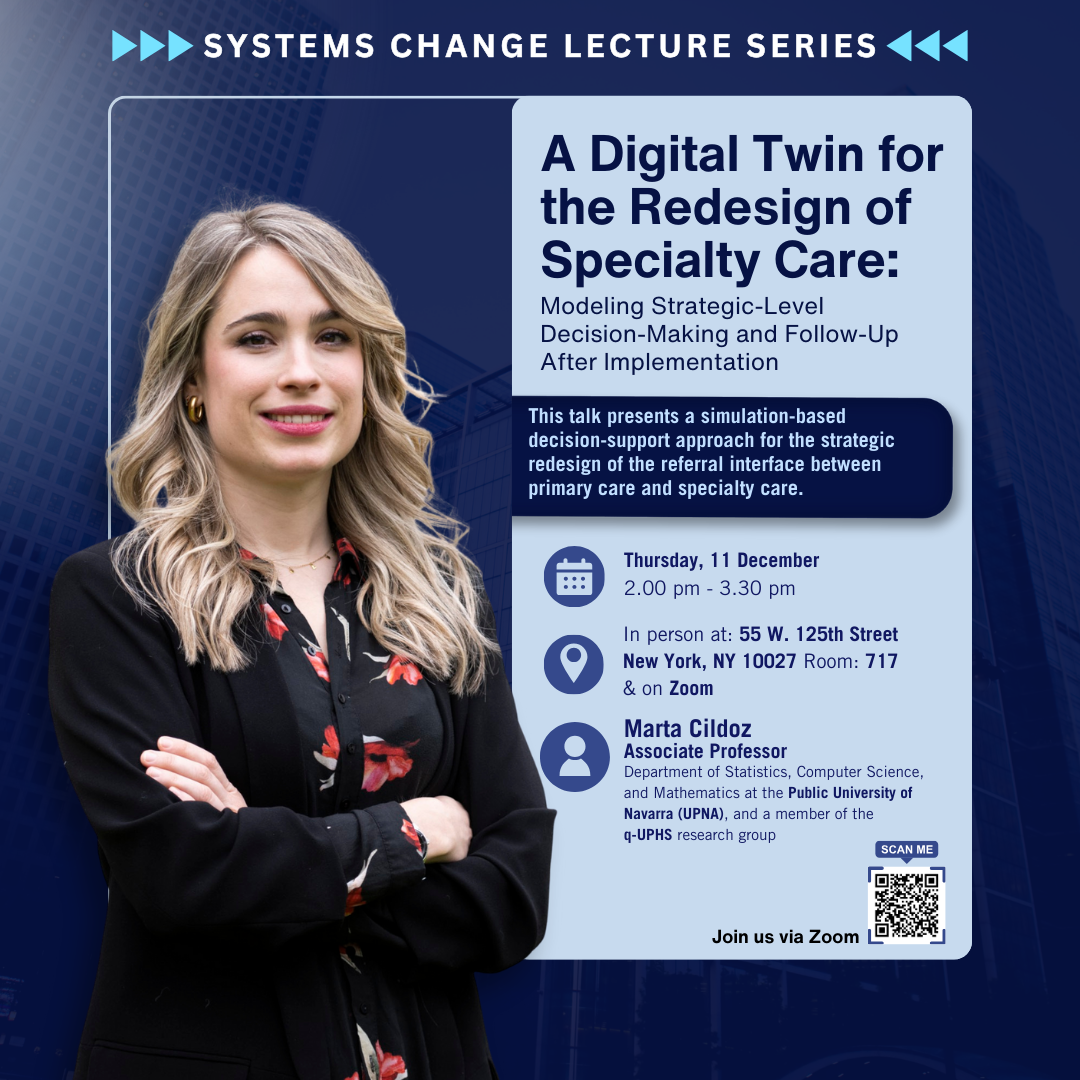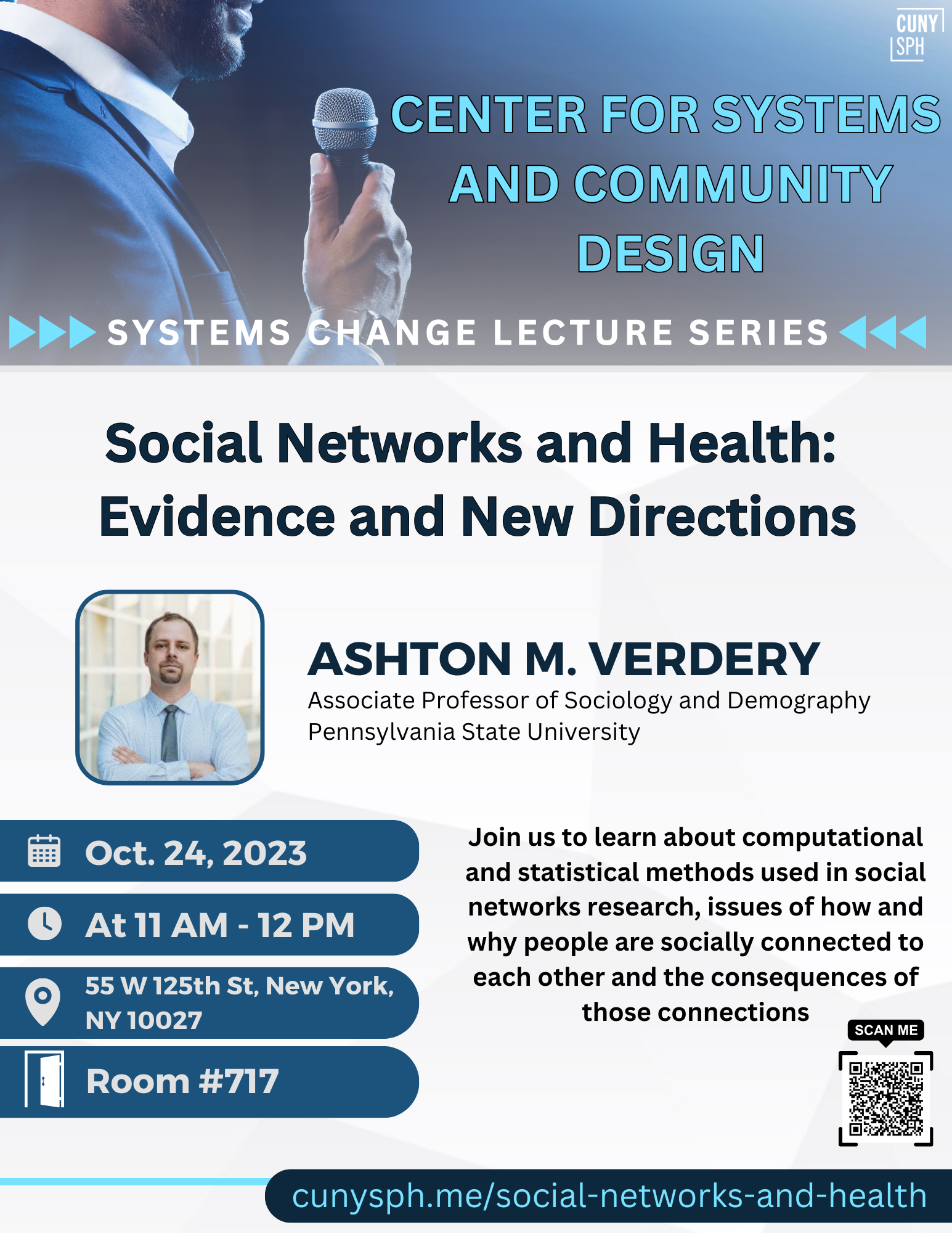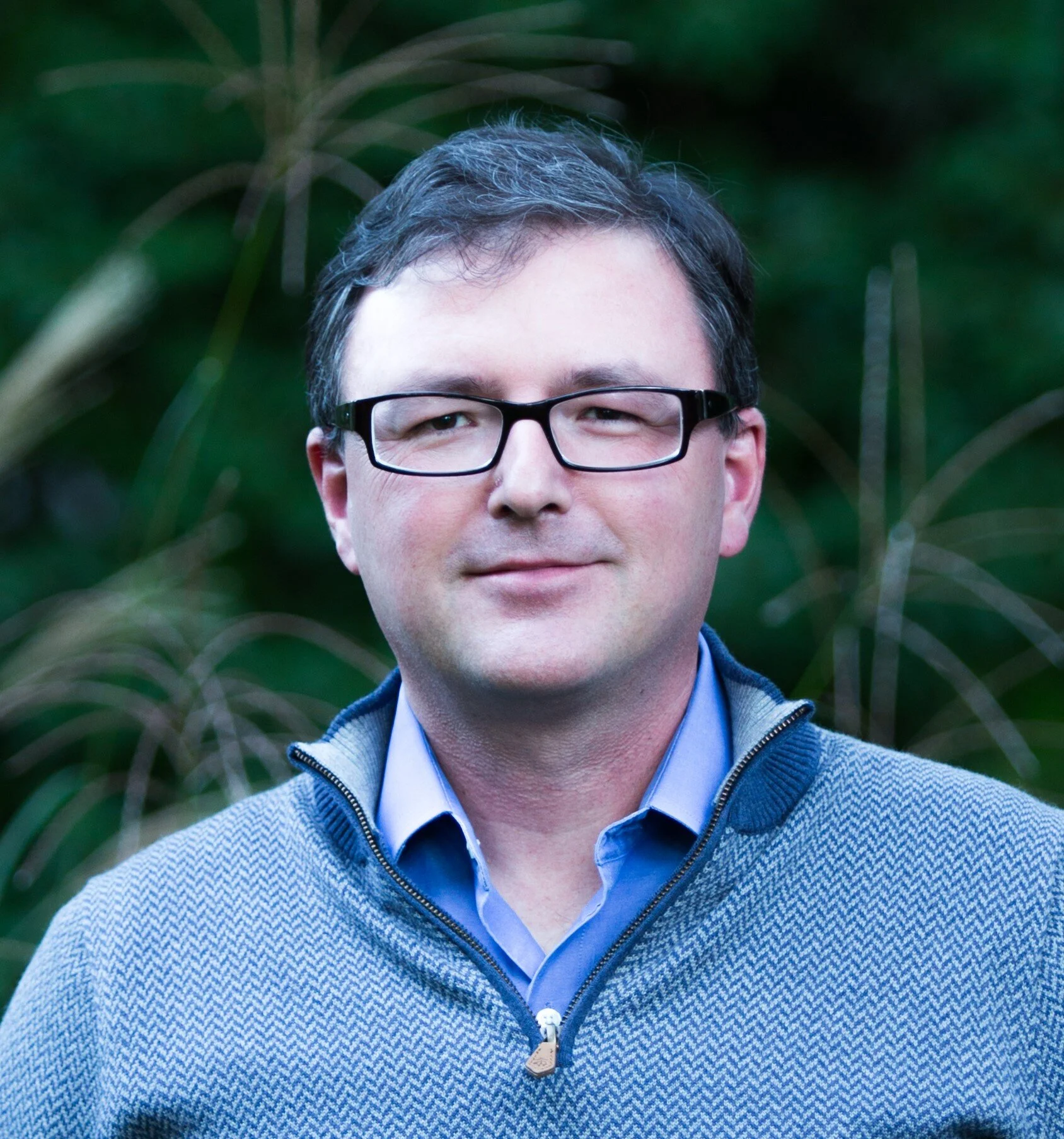Presenters
Terry TK Huang, PhD, MPH, MBA (bio)
Professor and Chair, Department of Health Policy and Management Director, Center for Systems and Community Design Co-Director, NYU-CUNY Prevention Research Center CUNY Graduate School of Public Health and Health Policy
Nasim S. Sabounchi, PhD (bio)
Research Associate Professor Department of Health Policy and Management Center for Systems and Community Design CUNY Graduate School of Public Health and Health Policy
David W. Lounsbury, PhD (bio)
Assistant Professor, Epidemiology & Population Health Associate Director, Patient-Centered Outcomes Research Training Division of Health Behavior Research and Implementation Science Albert Einstein College of Medicine
Presentation and Discussion
From implementation science to community engagement, systems science methodologies, like system dynamics modeling, engage stakeholders in a participatory process that often yields compelling, graphic ways of informing both challenges and solutions to complex systems problems.
The aim of this process is to generate useful models to better understand how diverse community stakeholders work in partnership to address opioid use disorder, and how to effectively implement evidence-based interventions to reduce overdose morbidity and mortality at the local level.
These models will also likely inform the maintenance and sustainability of effective interventions over time and policy decisions in New York State and nationally.
REGISTER HERE
About the HEALing Communities Study
The National Institute of Health (NIH) launched the HEAL (Helping to End Addiction Long-termSM) initiative, an aggressive, trans-agency effort to speed scientific solutions to stem the national opioid public health crisis. The School of Social Work received an $86 million grant from the National Institute on Drug Abuse (NIDA) to spearhead an ambitious multi-year effort to reduce opioid overdose deaths in New York State. The effort, part of a nationwide research study on how to address the opioid crisis, is being led by SIG Director and University Professor Dr. Nabila El-Bassel.
This federal grant, one of Columbia’s largest ever, brings together Columbia’s School of Social Work, the Department of Psychiatry, the Mailman School of Public Health, the Data Science Institute, as well as researchers from Albert Einstein School of Medicine/Montefiore Health System, City University of New York, Weill Cornell Medical College, New York University School of Medicine, University of Miami, and Yale School of Medicine.
Register













